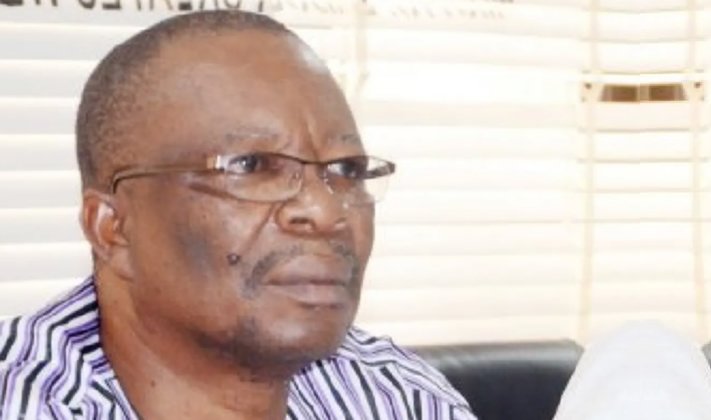Except to the uninitiated, recent developments surrounding the eight-month old industrial action by the Academic Staff Union of Nigerian Universities (ASUU), graphically manifest the deeper incongruities plaguing the country’s aspirations towards meaningful socio economic development.
Perhaps, a major weakness in the position of the current ASUU leadership is the shared failure by generations of past leaderships to read correctly, the obduracy of successive governments in Nigeria towards sacrificing pomp and perquisites of office for fostering true and sustainable development of the country. The foregoing enjoys significant connection with respect to the current strike action. Following its disturbingly long duration as well as the hardening of positions by the government and ASUU, the National Assembly, acting through the Speaker of the House of Representative Femi Gbajabiamila had intervened last week and and on Tuesday even secured the intention of President Muhamadu Buhari to look into the matter this week. According to Gbajabiamila, Buhari had scheduled another meeting with them for Thursday just two days after the first meeting.
Businesses post-pandemic: Role of location
FG versus ASUU: The mafia tactics
However even as the country was waiting for the president’s response, the Minister of Labour Chris Ngige breached protocol and launched, on that same Tuesday, a seemingly vengeful mission of throwing a spanner into the works. Out from the blue came the announcement that the Ministry of Labour had suddenly registered two new trade unions in the country’s university system. These new unions are the Congress of Nigerian Universities Academics (CONUA), and National Association of Medical and Dental Academics (NAMDA). According to Ngige, these two new unions shall operate along with ASUU. Also coming from him was the revelation that the new unions had applied for registration as far back as 2018. Their registration was apparently facilitated in the course of the ASUU crisis! In any case, hardly can it be concealed that the emergence of these two unions was simply to undermine the powers and capacity of ASUU. To add more effect to the ongoing drama, CONUA is now advising the federal government and ASUU to resolve their dispute amicably!
Seen in context, the initiative by Ngige with respect to the two new trade unions, lends itself to several interpretations. In one vein is whether his initiative enjoys the support of President Muhamadu Buhari, who had promised the country to look into the recommendations of the National Assembly. Under the circumstances the least expected of Ngige was to wait for the President to respond as he had promised. But that would not be. As a minister working under President Muhamadu Buhari, his action serves as a direct position ad ridicule to that of his principal’s position. If that be so it imposes a credibility crisis on Buhari himself who stands to be seen as playing-double speak on the highly disturbing matter of the ASUU strike. On the other hand, if Ngige had acted alone in fostering the emergence of these two unions at this time, it will also be properly interpreted as proving a deficit of harmony in the executive arm of government, which is a malady that has been associated with the administration for some time. Meanwhile, ASUU has gone to court to contest the emergence of the two new unions, thereby launching the matter on to a new level.
Against the backdrop of the ding dong sequence inherent in the crisis it is difficult to see the entire spectacle beyond the scope of compromised sense of patriotism. For it is only such a mindset that could have allowed the class rooms of the country’s mainstream (federal) universities to remain empty for as long as eight long months, when the regular academic year runs for nine months. Coupling this development with the yet to abate vagaries of the dreaded COVID-19 pandemic, which crippled the country along with the whole world for much of 2020, conjures in graphic terms, how far the quality of higher education in the country has been actually eroded, given the 18 unbroken months of dislocations which ran from March 2020 to the present. For in truth, regular academic work in our universities stopped by the commencement of the COVID-19 pandemic around March 2020. Some of the most critical fallout of the strike action include the distortion it has caused in the truncation of ongoing complement of research projects as well as graduation programmes of various institutions along with careers prospects of individual students.
For the purpose of recall, ASUU had embarked on the ongoing strike on February 14, 2022 to press the federal government to do the needful in respect of its own agreements on areas including the following – allocation of more budgetary provisions for higher education in the country and payment of earned academic allowances. Other areas are the implementation of a dedicated salary structure for academic staff of universities as obtains in several other agencies of the same government, restoration of visitation panels to inspect the condition of universities and check the unsustainable proliferation of universities in the country.
Seen in context, conceding these grounds to ASUU—even with their unmistakably altruist essence, seems a bitter pill to swallow by some government officials. And the country continues to suffer even avoidably. Pity, one would say!

 Join Daily Trust WhatsApp Community For Quick Access To News and Happenings Around You.
Join Daily Trust WhatsApp Community For Quick Access To News and Happenings Around You.


